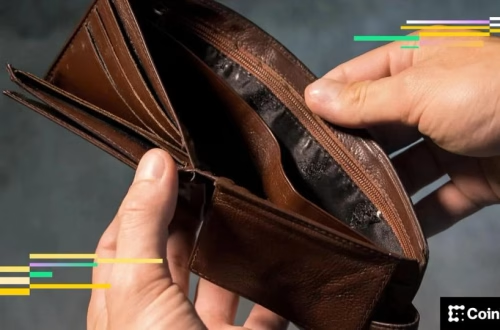What is a Crypto Wallet Address
Summary:
A crypto wallet address is a unique alphanumeric identifier, similar to a bank account number, used to send, receive, and store cryptocurrencies like Bitcoin, Ethereum, or meme coins. It acts as a digital location on a blockchain network where transactions are recorded. Wallet addresses are generated through cryptographic algorithms linked to a user’s private and public keys. They matter because they enable secure, decentralized transactions without intermediaries. Understanding wallet addresses is essential for anyone interacting with cryptocurrencies, NFTs, or decentralized applications (dApps).
What This Means for You:
- You control your assets directly: A wallet address lets you manage crypto without banks. However, losing access to your private key means losing your funds permanently—so backup securely.
- Every transaction requires precision: Sending crypto to the wrong address is irreversible. Always double-check addresses before confirming and use QR codes when possible to minimize errors.
- Privacy vs. transparency trade-off: While wallet addresses don’t reveal personal data, all transactions are publicly visible on blockchains. Use new addresses for each transaction to enhance privacy.
- Future outlook or warning: Wallet addresses will evolve with quantum-resistant cryptography and multi-chain interoperability. Watch for scams like “address poisoning,” where mimic addresses trick users into sending funds to attackers. Stay informed about wallet upgrades to avoid vulnerabilities.
Explained: What is a Crypto Wallet Address
The Structure of a Crypto Wallet Address
A crypto wallet address typically consists of 26-35 alphanumeric characters (e.g., Bitcoin: 1A1zP1eP5QGefi2DMPTfTL5SLmv7DivfNa, Ethereum: 0x742d35Cc6634C0532925a3b844Bc454e4438f44e). These are hashed versions of a public key, created using cryptographic algorithms like SHA-256 or RIPEMD-160. The address serves as a shortened, user-friendly representation of a public key, ensuring secure transactions without exposing sensitive data.
How Wallet Addresses Work
Wallet addresses are derived from a pair of cryptographic keys:
- Private Key: A secret code (e.g., 64 hexadecimal characters) that proves ownership and authorizes transactions. Never share this.
- Public Key: Generated from the private key, it validates transactions mathematically without revealing the private key.
When you share your wallet address, others can send crypto to it. The blockchain network verifies transactions by confirming the sender’s digital signature (from their private key) and routes funds to your address.
Types of Wallet Address Formats
- Legacy Addresses (P2PKH): Older Bitcoin formats starting with “1.” Less efficient but widely supported.
- SegWit Addresses (Bech32): Newer Bitcoin addresses starting with “bc1.” Lower fees and faster processing.
- ERC-20 Addresses: Ethereum-based addresses starting with “0x.” Compatible with tokens like meme coins and NFTs.
Security Strengths and Risks
Strengths:
- Immutable Transactions: Once confirmed, transactions can’t be altered.
- Pseudonymity: Addresses don’t inherently link to identities.
Weaknesses:
- Human Error: Mistyping addresses leads to irreversible loss.
- No Chargebacks: Unlike banks, crypto transactions can’t be reversed.
Best Practices for Using Wallet Addresses
- Use hardware wallets (e.g., Ledger) or reputable software wallets (e.g., MetaMask).
- Enable multi-signature features for shared accounts.
- Verify addresses using wallet’s copy-paste checksum validation.
Limitations and Future Developments
Current wallet addresses aren’t quantum-resistant, posing long-term security risks. Solutions like ICON’s “SAFE” addresses aim to integrate usernames for simplicity. Cross-chain protocols (e.g., Polkadot) are enabling universal addresses for multiple blockchains.
People Also Ask About:
- Is a wallet address the same as a crypto wallet?
No. A wallet address is just the identifier for transactions, whereas a wallet is software/hardware storing keys and managing multiple addresses. - Can I reuse the same wallet address?
Yes, but it’s discouraged for privacy. Reuse makes tracking your activity easier through blockchain explorers. - What happens if I send crypto to a wrong address?
Funds are lost unless the address is inactive or owned by someone who refunds you—though this is rare. - Can I have multiple wallet addresses?
Yes! Most wallets generate unlimited addresses for enhanced privacy and organization (e.g., separating NFTs from Bitcoin).
Expert Opinion:
Crypto wallet addresses are foundational to blockchain security but require rigorous safeguards. Experts emphasize storing private keys offline and avoiding SMS-based 2FA for wallets. Multi-signature setups and hardware wallets are trending as theft risks rise. With quantum computing advances, adopting post-quantum cryptography will soon become critical for long-term asset protection.
Extra Information:
- Bitcoin.org: Explains wallet types and address formats for Bitcoin beginners.
- Ethereum Wallets Guide: Demystifies ERC-20 addresses and NFT storage best practices.
- Blockchain Explorer: Track transactions and verify wallet address activity on major blockchains.
Related Key Terms:
- how crypto wallet addresses work for beginners
- secure bitcoin wallet address best practices
- how to create a crypto wallet address for NFTs
- difference between crypto wallet and wallet address
- can crypto wallet addresses expire or change
*Featured image provided by Pixabay



